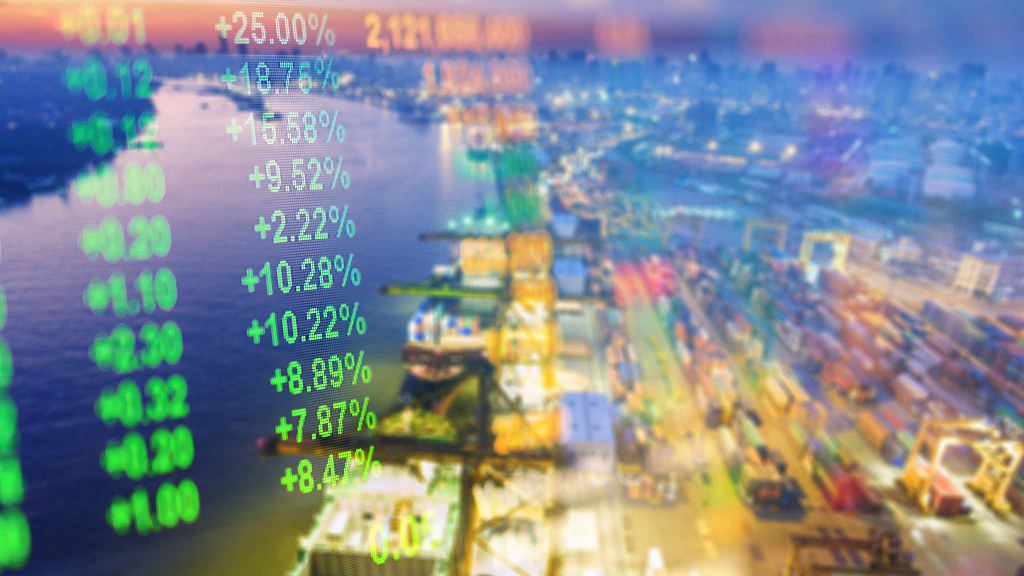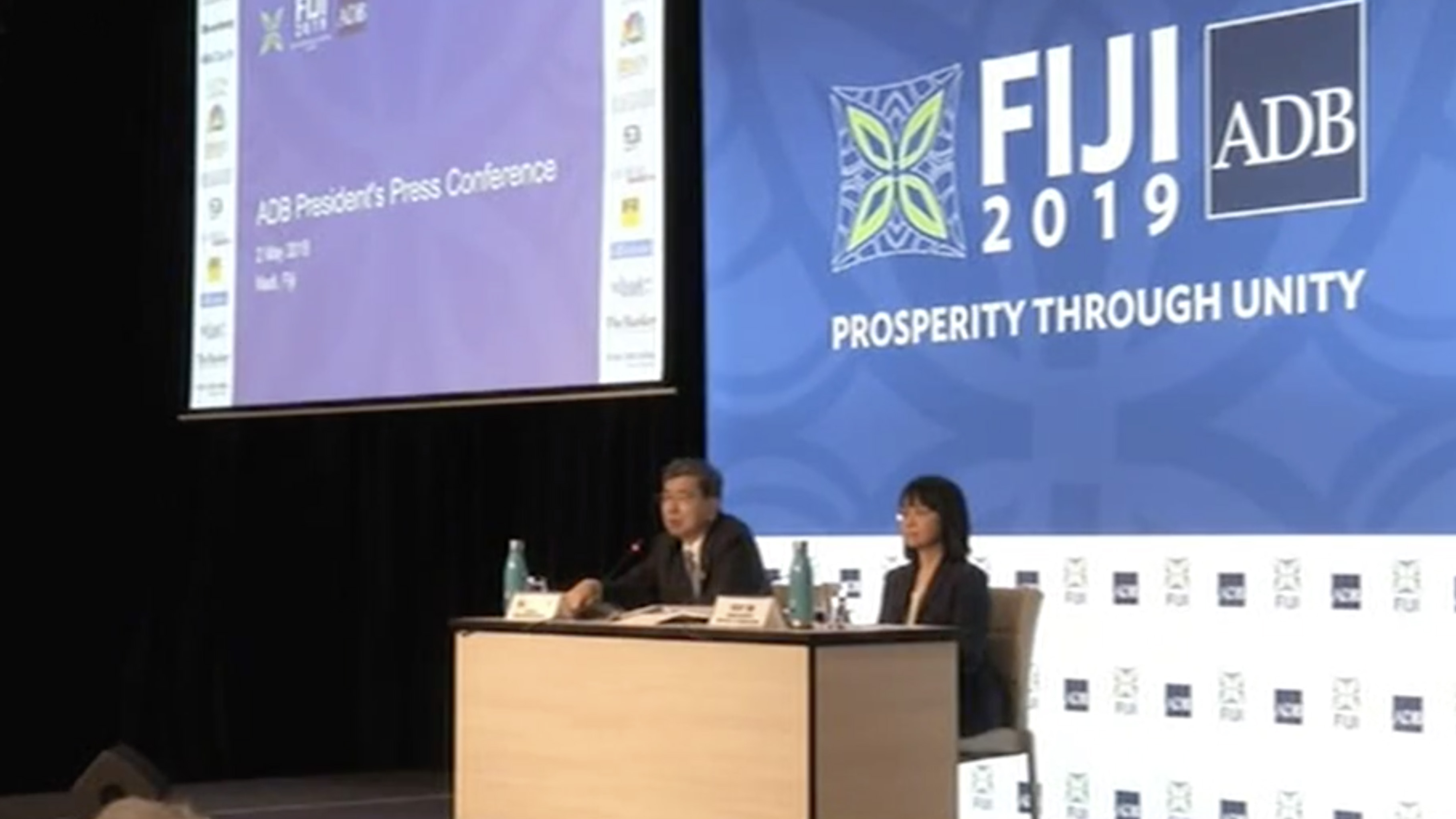
Economy
22:42, 07-May-2019
Asian finance ministers more positive than IMF on their economies, says ADB president
Global Business
01:17

Asian finance ministers are more positive than IMF about their economies, Takehiko Nakao, president of the Asian Development Bank (ADB), told CGTN after their annual meeting wrapped up in Fiji.
Nakao said Asian economies are growing steadily and even accelerating in some countries. He also thought that Asian finance chiefs are more optimistic about the economy than their Western peers while predicting the regional economy to double in 12 years with a six-percent annual growth.
"India is growing at the pace of more than seven percent even at a higher number in this year and the next year. Bangladesh, Myanmar, Vietnam and Mongolia are growing very fast. China is slowing down compared to previous years, but still maintaining six to 6.5 percent range," Nakao explained.
The bank chief played down perceived friction among ADB, Asian Infrastructure Investment Bank (AIIB) and the World Bank due to political differences of their main backers.
01:42

"In the sense of money issue, what it really did, for instance between the World Bank and the ADB, the difference is not so much… ADB has a very good relationship with AIIB and Mr. Jin (refers to AIIB President Jin Liqun) is a very close counterpart of mine," he said.
From his perspective, the media are overstating the differences. "In rhetoric, these institutions are regarded as the kind of different things and have influence on different countries [respectively]. Media are trying to put these three institutions against each other. But I don't buy that idea," Nakao told CGTN.
Nakao also stressed bankability and viability in Belt and Road Initiative (BRI) projects. "To connect Europe and Asia, we can cooperate if there is a good project to work together. But we need good returns to justify the investment, and we, including BRI lenders, should pay attention to the social and environmental impact."
In response to concerns about ADB's sluggish speed in lending, the bank chief said the ADB would remove red tape to accelerate the process.
"If we are asking countries to remove red tape and deregulate things, we should also deregulate things. We need certain good standards to follow, like environmental and social impact studies," he said.
ADB on healthy oceans and sustainable tourism
The annual meeting was held in a Pacific developing country for the first time, many sessions were dedicated to ocean health and sustainable tourism. It is estimated that if no action is taken, by 2050 as much as 95 percent of coral reef would be gone and so would be most the fish stock.
"The ocean health is already a known issue, such as plastic litter pollution. They know it. But by having meetings and seminars in this annual meeting, many ministers, senior officials, media and civil society people have more awareness on the importance of these issues," he said.
The president acknowledged that the "interlink" between healthy ocean and tourism doesn't go well, as nations have to make the decision between short-term gain in economy and long-term preservation of resources.
During the annual meeting, the bank announced it would launch a 5-billion-U.S.-dollar Action Plan for Healthy Oceans and Sustainable Blue Economies, which would focus on dealing with untreated wastewater, plastic litter pollution, and unsustainable fishing practices.

SITEMAP
Copyright © 2018 CGTN. Beijing ICP prepared NO.16065310-3
Copyright © 2018 CGTN. Beijing ICP prepared NO.16065310-3